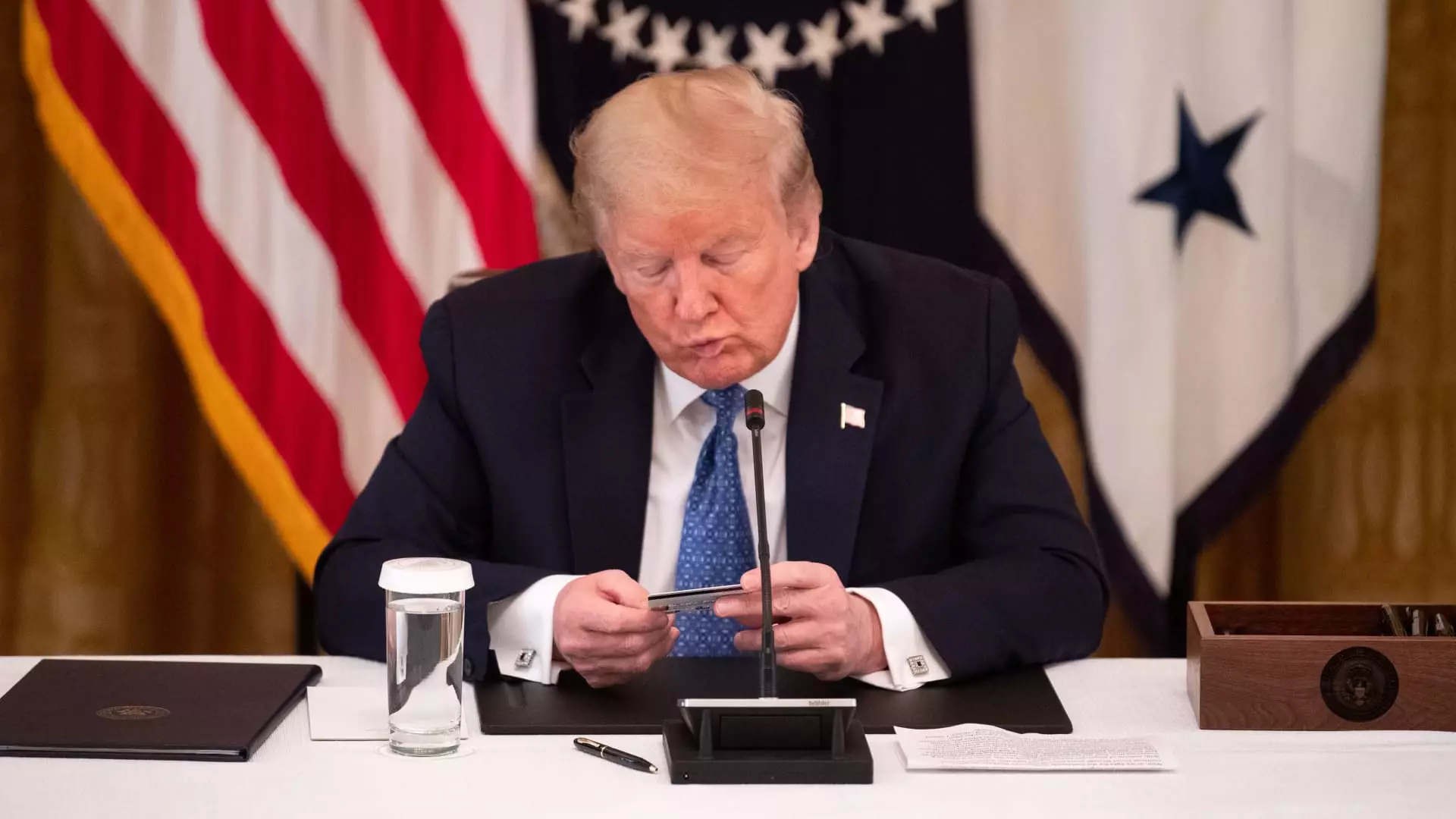In the ever-evolving landscape of cryptocurrencies, political affiliations often spark immense interest and scrutiny. The recent attempt by former President Donald Trump and his associates to dive into the digital currency realm through their new project, World Liberty Financial (WLF), has encountered a series of issues right out of the gate. This endeavor, touted as a revolutionary approach to decentralized finance (DeFi), has faced technical difficulties that marred its initial launch, raising concerns over its viability and the broader implications for Trump’s reputation, particularly so close to an impending presidential election.
Turbulent Beginnings: Technical Glitches and Sales Shortfalls
World Liberty Financial commenced its token sale on a Tuesday, following a substantial pre-launch buildup where co-founder Zachary Folkman claimed that over 100,000 individuals were eager to invest. However, the excitement quickly soured when potential investors encountered persistent outages on the WLF website. For an extended period that morning, users attempting to access the platform were instead met with a message indicating that the site was undergoing maintenance. Such technical disruption not only dampened user enthusiasm but also resulted in a staggering low sales figure; reports suggested that merely 4,300 unique wallets held the WLF token by Tuesday afternoon, a disappointing figure considering that it represented approximately 4% of those who had registered to invest.
Moreover, the numbers underscore a broader concern regarding the project’s sustainability. So far, only about 532 million tokens had sold at 15 cents each— a mere fraction of the 20 billion tokens slated for public offering. The low uptake raises questions about the project’s market appeal and the feasibility of its ambitious goal to raise $300 million at a valuation of $1.5 billion.
World Liberty Financial pitched its token sale as a Regulation D offering, a designation that allows it to raise funds without registering with the Securities and Exchange Commission (SEC), but only under certain parameters. Among these are the stipulation that sales be limited to accredited investors— meaning those with a net worth exceeding $1 million. Yet, the lack of transparency surrounding the project, including the absence of a formal white paper detailing its objectives and business strategy, raises significant red flags for potential investors.
Considering this, the token’s proposed function is vague. According to insiders, the concept is to create a space where customers can borrow, lend, and invest in cryptocurrencies, yet the specifics remain largely undisclosed. Furthermore, while the promise of voting rights over the platform’s governance is an alluring incentive, the obscurity surrounding the operational framework may deter seasoned investors from backing what seems to lack a robust structure.
The launch hiccups of World Liberty Financial represent more than just technical failures; they are symptomatic of the intertwined relationship between politics and technology, particularly in the context of Trump’s brand. As a Republican presidential contender, Trump’s involvement in cryptocurrency adds another layer to his complex public persona. The dismal launch comes at a particularly pivotal juncture, with just weeks to go before the election, potentially overshadowing not only his political aspirations but also his legacy within the financial domain.
Simultaneously, reports indicate that the broader spectrum of Trump-related stocks is facing turbulence. The shares of the Trump Media & Technology Group experienced a near 10% drop following trading halts, illustrating that the dismal performance of one enterprise can have a cascading effect on others linked to the Trump name.
As World Liberty Financial moves forward amidst its troubled start, it remains to be seen whether it can recover from these early setbacks. The combination of technical failures, regulatory hurdles, and unclear investment propositions potentially jeopardizes the project’s long-term viability. Thus, while WLF may seek to position itself within the burgeoning DeFi landscape, its future appears precarious at best, leaving investors, stakeholders, and the Trump family with a pressing question—can they reclaim momentum, or has the cryptocurrency train already left the station?

